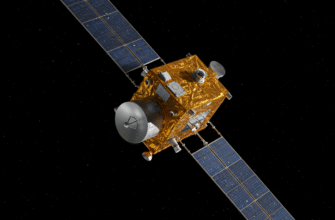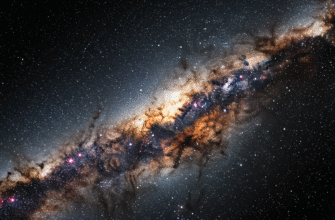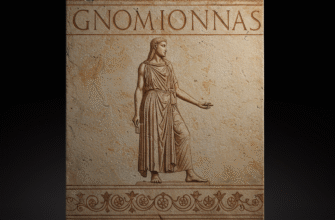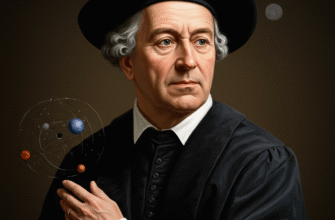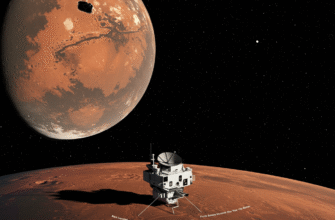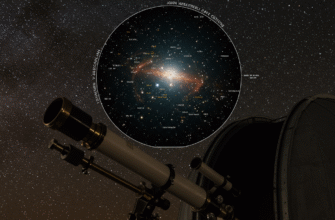Imagine, if you will, a game table not of polished wood or shimmering crystal, but one sprawling across the velvet, stippled void of space. The players? Beings of immense, almost unimaginable power, whose idle thoughts could spark nebulae into existence or unravel the very fabric of a galaxy. And the stakes? Not mere gold or fleeting mortal allegiances, but dominion over vast celestial territories, shimmering slices of eternity itself, or even the subtle, potent currents of time. This was no leisurely pastime; it was a high-stakes cosmic gamble, where comets streaked like dice across the cosmic felt and constellations themselves were the intricate, ever-shifting cards in play.
The notion of deities, those ultimate architects and overseers, engaging in such grand, perilous games is a recurrent whisper in the forgotten corridors of myth and legend. It paints a universe far less staid and ordered than we might presume, a cosmos alive with dynamic flux, subject to the passions, the rivalries, and the insatiable competitive spirit of its most potent inhabitants. Why would beings who command reality itself resort to the caprice of chance or the strategy of a game? Perhaps it was an elegant, formalized method to settle disputes too vast, too fundamental for simple decree or outright destructive conflict. Or could it be that even immortality, with its endless vistas of existence, could not entirely dull the primal thrill of the wager, the allure of an uncertain outcome?
The Impetus Behind Divine Wagers
One might reasonably ponder what compels entities, already vested with power verging on the absolute, to engage in games where the potential losses are as astronomical as the gains. Was it an antidote to boredom, the profound, creeping ennui that might shadow an existence stretching across eons, where every eventuality has been witnessed, every song heard? Or perhaps it was a more structured, albeit terrifyingly grand, form of cosmic diplomacy. Consider two deities of equivalent might, both with their gaze fixed upon a newly coalesced nebula, a region pregnant with nascent energies and untold potential. A direct confrontation, a war between such powers, could shatter star systems, unravel cosmic laws. A game, however, offered a path to resolution, a binding outcome dictated by skill, fortune, or a complex interplay of both, circumventing the catastrophic collateral damage of open divine warfare.
Beyond mere conflict resolution, these celestial games could have been a fundamental, intrinsic aspect of their very being, a method to inject novelty, surprise, and organic development into an otherwise eternal and potentially monotonous tapestry of reality. The exhilarating shiver of the unknown, the tantalizing, almost unthinkable possibility of loss even for the supremely mighty, could have been an irresistible siren call. It is a reflection, magnified to a divine scale, of a universal constant: the deep-seated allure of the game, the challenge, the unfolding story inherent in any contest.
The Sun and Moon’s Endless Bet
An age-old tale, carried on the solar winds and whispered by the reflective glow of lunar light, speaks of Solara, the ever-radiant Goddess of the Sun, her essence a boundless inferno of creation, and Nocturnus, the brooding, enigmatic God of the Moon and the Deep Shadows. They were eternally bound in a cosmic dance of light and darkness, but also, so the legend goes, locked in an eternal, ever-renewing wager. Each dawn, as the first rays pierced the veil of night, they would cast ethereal dice, one fashioned from crystallized starlight, impossibly bright, the other from solidified void, absorbing all light. The outcome of this daily roll subtly determined the precise length of the day and the dominion of the night. Sometimes, Solara would win a precious sliver more of time, painting the dusk with extraordinary, lingering hues of fire and gold, her warmth caressing the worlds below for a few moments longer. Other times, Nocturnus would claim victory, drawing his velvet cloak of stars over the realms with a swift, premature embrace.
Mortals on the myriad worlds below, entirely unaware of this daily cosmic dice roll, would simply observe and adapt. They might marvel at an unusually prolonged, breathtaking sunset, or note the swift, almost eager onset of deep night, never suspecting that their daily rhythm, the very cadence of their lives, was subject to a celestial game of chance, a subtle rebalancing of cosmic power.
The Shuffling of Seasons and Fortunes
Then there were the Four Regents of Seasons, each a potent entity embodying the unique spirit of their temporal domain: Vernalia of Spring’s vibrant renewal, Aestus of Summer’s scorching blaze, Autumnus of the melancholy, fruitful harvest, and Hiemalis of Winter’s stark, introspective slumber. They didn’t typically gamble for spatial territory, for their dominions were inherently cyclical, woven into the flow of time itself. Instead, they played a complex, year-long game with cards woven from ephemeral yet powerful symbols: the first unfurling bud of a snowdrop, the last fiery petal of a summer rose, the perfectly golden hue of an autumn leaf, and the silent, crystalline structure of the first frost. The winner of each grand round, concluded at the turn of a year, could subtly extend their season’s influence into the next cycle. This could lead to springs that lingered like a cherished, tender memory, summers that blazed with an almost unbearable, glorious intensity, autumns that offered a bounty far beyond expectation, or winters that bit deeper, holding worlds in their icy, silent grip for far longer than mortals deemed natural or fair.
These games were rarely born of malice, not in the grand scheme. They were more akin to a profound, cosmic sibling rivalry, played out on a planetary scale, each deity eager to showcase the unique beauty, power, and necessity of their domain. Yet, the consequences on fledgling worlds, on civilizations dependent on predictable cycles, could be deeply significant. A late, unexpected frost, born of Hiemalis’s successful play, could devastate new blooms and fragile crops. A shortened, anemic summer, due to Aestus losing a crucial hand, might mean a meager harvest and a difficult winter ahead for those who toiled below.
While these narratives are steeped in the fantastical, they invariably touch upon a deeper philosophical undercurrent: the intricate dance of chance and agency within the vast expanse of the universe. If even the supposed architects of reality, the gods themselves, are subject to the unpredictable roll of cosmic dice or the turn of a celestial card, it paints a picture of existence where nothing is entirely preordained or absolutely certain. This can be both a profoundly unsettling and a strangely liberating thought, suggesting a cosmos brimming with infinite possibilities, perpetually shaped by forces and games that often lie beyond our immediate grasp or comprehension.
The Abstract Wealth of the Gods: Time and Territory Redefined
When we, with our mortal limitations, speak of gods gambling for “time” or “territory,” our understanding can only feebly scratch the surface of what these concepts might truly entail for such beings. For entities who may exist outside, or alongside, the linear progression of moments that defines our experience, what precisely is “time”? It might not be the relentless river upon which we are carried, but rather a vast, shimmering tapestry they can subtly re-weave, unpick select threads from, or even wager portions of. Perhaps “winning time” meant gaining an eon of amplified influence over a particular cosmic cycle, the ability to subtly nudge pivotal events within a specific temporal domain, or even temporary custodianship over a nascent timeline.
Celestial real estate, too, transcends our common understanding. It’s highly unlikely they were squabbling over individual planets or star systems in the way humans might contest parcels of land. More probable is that “territory” referred to far more abstract, yet potent, domains: spheres of overarching influence, control over fundamental cosmic forces within a given galactic sector, or perhaps dominion over the currents of belief, worship, and nascent consciousness emanating from clusters of nascent civilizations. A “territory” might even be a fundamental concept, like “luck” itself, or “inspiration,” or “dreams,” with the winning god gaining greater power to dispense or withhold that aspect of existence across the known universe.
Imagine a game where the grand prize was the stewardship of the “Echo of Creation,” a fleeting, recurring cosmic event where the conditions become perfect for new universes to be sparked into being. Or picture a high-stakes wager for control over the “Chromatic Nebula,” a mythical region where the raw, fundamental colors and energies of existence were forged and from which all hues flowed. These are not places one can simply plant a flag and claim; they are concepts, potentials, and fundamental forces of immense power.
When the Dice Fall Wrong: The Dire Cost of Losing
Echoes of a Lost Divinity
Losing such a game, where the stakes are segments of reality or eons of influence, would naturally have consequences far beyond mortal comprehension or terrestrial disaster. A god might not “die” in the human sense of cessation. Instead, they could fade, their power diminishing like a slowly cooling star, their divine influence waning until they were but a whisper in the cosmic winds, a forgotten name in the litany of powers. Perhaps they would be forced to forfeit a significant portion of their divine essence, the very core of their being, or lose their inherent claim over a fundamental force they once commanded with effortless grace. Ancient, fragmented legends speak of “fallen” or “diminished” deities – not necessarily beings who turned to evil, but often those who simply lost too many crucial bets at the great celestial gaming table, their light fading from the cosmic stage.
Consider a god whose essence was tied to a particular, vibrant star. After a disastrous celestial game, they might witness their patron star cool and dim prematurely, their celestial territory shrinking as their power ebbed, their voice in the cosmic chorus reduced to a mere sigh. Or imagine a deity of prophecy and foresight who, having wagered their very gift of vision and lost, was condemned to perceive only the mundane, immediate present, their cosmic voice, once capable of shaping futures, utterly silenced. The universe, in these tantalizing tales, is subtly littered with the آثار of these grand losses – a strangely dark and cold patch of interstellar space, a physical law that seems to operate with a peculiar, inexplicable quirk in one corner of a galaxy, or a constellation whose faint stars tell a half-forgotten story of a power that once blazed brightly and then, was no more.
The delicate, intricate balance of the cosmos itself could subtly, or dramatically, shift. If a powerful deity representing, for instance, immutable order and structure, lost a significant wager to a god embodying fluid chaos and relentless change, the ripples would be felt across innumerable galaxies. This might not manifest as overt, immediate destruction, but rather as a gradual increase in universal randomness, a slow fraying of the predictable patterns of existence, making the universe a slightly wilder, less certain place.
The Unseen Audience: Mortals in the Shadow of the Game
Pawns, Spectators, or Blissfully Oblivious?
And where do we, the myriad mortal species scattered across countless worlds, fit into this grand, divine, and often perilous spectacle? In most such ancient tales and imaginative chronicles, humanity and other sentient races are largely, perhaps mercifully, unaware of the colossal games being played out in realms far above their heads and beyond their sensory perception. We might experience the distant, diluted consequences – an unexpectedly long and harsh winter, a sudden inexplicable drought that withers the land, a period of uncanny collective luck or widespread misfortune – but we would likely attribute them to the perceived whims of nature, the inscrutable dictates of fate, or the actions of lesser, more localized spirits and demigods.
It’s a profoundly humbling thought, to consider that our entire civilizations, with all their triumphs and tragedies, might be infinitesimal specks on the cosmic game board, their fates subtly influenced, their histories perhaps gently nudged, by the collateral effects of a divine wager won or lost epochs ago. Or maybe, our collective consciousness, our fervent belief, our prayers, our very vital existence, could be a subtle form of energy, a kind of spiritual currency, that the gods themselves subtly gamble for, adding to their power or prestige.
Yet, there exists another, more empowering perspective. Could it be that the gods, in their eternal games and grand contests, are not entirely insulated from the worlds below? Perhaps they are subtly influenced by the collective currents of mortal hopes, fears, and aspirations. A great, unified surge of human desire for spring’s return, a billion minds yearning for warmth and renewal, might lend a sliver of unseen power, a mote of cosmic advantage, to the Spring Regent in their crucial seasonal card game. This would elevate us from mere passive observers or unwitting pawns to an almost unconscious, yet tangible, influence on the divine players themselves, our collective spirit a faint whisper in the ears of the gods.
A Universe Woven with Wagers: The Enduring Allure
The Cosmic Casino Never Closes
The idea of gods, the ultimate powers, gambling for the control of celestial territories or the very threads of time remains a potent and enduring concept in the human imagination. It elegantly strips away the sterile image of an entirely deterministic, clockwork universe, replacing it with one that is vibrantly alive with agency, divine passion, boundless creativity, and the ever-present, exhilarating possibility of chance. These stories, whether they echo from the depths of ancient mythology or spring fresh from modern fantastical re-imaginings, tap into a fundamental human understanding: that even at the most exalted levels of power and wisdom, the outcome is not always certain, the future not entirely written.
They remind us that the cosmos might be less about immutable, rigid laws and more about an ongoing, dynamic, and sometimes perilous interplay of immense forces, where even the supposed architects of reality are not immune to the thrill of a high-stakes game, the sting of a loss, or the exultation of a hard-won victory. Whether these divine gamblers are perceived as benevolent, utterly indifferent, or dangerously capricious, their imagined contests add a profound layer of awe, mystery, and sometimes a touch of trepidation to the vast, star-dusted expanse we call home. So, the next time you gaze up at the night sky and see a shooting star blaze across the darkness, you might just pause and wonder if it’s a divine die, cast in a game that subtly shapes the fate of worlds, a fleeting glimpse into the grand casino of the gods.


